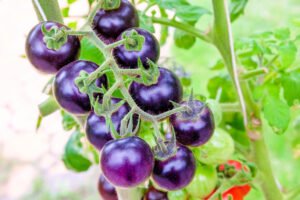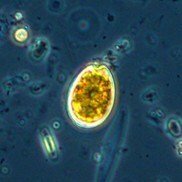Friday, 6 February 2026
FDA finalizes FSMA rule on Produce Safety
The rule establishes, for the first time, science-based minimum standards for the safe growing, harvesting, packing, and holding of fruits and vegetables grown for human consumption. The FDA Food Safety…

The rule establishes, for the first time, science-based minimum standards for the safe growing, harvesting, packing, and holding of fruits and vegetables grown for human consumption.
The FDA Food Safety Modernization Act (FSMA) Produce Safety rule is now final and the earliest compliance dates for some farms begin one year after the effective date of the final rule.
The rule establishes, for the first time, science-based minimum standards for the safe growing, harvesting, packing, and holding of fruits and vegetables grown for human consumption.
This rule was first proposed in January 2013. In response to input received during the comment period and during numerous public engagements that included public meetings, webinars, listening sessions, and visits to farms across the country, the FDA issued a supplemental notice of proposed rulemaking in September 2014. The proposed revisions were designed to make the originally proposed rule more practical, flexible, and effective.
The final rule is a combination of the original proposal and revisions outlined in the supplemental proposal, with additional changes as appropriate. The definition of “farm” and related terms were revised in the final Preventive Controls for Human Food rule, and the same definitions of those terms are used in this rule to establish produce safety standards. Operations whose only activities are within the farm definition are not required to register with FDA as food facilities and thus are not subject to the preventive controls regulations.
The rule does not apply to:
- Produce that is not a raw agricultural commodity. A raw agricultural commodity is any food in its raw or natural state.
- The following produce commodities that FDA has identified as rarely consumed raw: asparagus; black beans, great Northern beans, kidney beans, lima beans, navy beans, and pinto beans; garden beets (roots and tops) and sugar beets; cashews; sour cherries; chickpeas; cocoa beans; coffee beans; collards; sweet corn; cranberries; dates; dill (seeds and weed); eggplants; figs; horseradish; hazelnuts; lentils; okra; peanuts; pecans; peppermint; potatoes; pumpkins; winter squash; sweet potatoes; and water chestnuts
- Food grains, including barley, dent- or flint-corn, sorghum, oats, rice, rye, wheat, amaranth, quinoa, buckwheat, and oilseeds (e.g. cotton seed, flax seed, rapeseed, soybean, and sunflower seed)
- Produce that is used for personal or on-farm consumption
- Farms that have an average annual value of produce sold during the previous three-year period of $25,000 or less
The rule provides an exemption for produce that receives commercial processing that adequately reduces the presence of microorganisms of public health significance, under certain conditions.
Technology
Australia Approves Commercial Release of GM Purple Tomato
Feb 06, 2026 | Australia
Detmold Group Reports Progress on Emissions Reduction, Circular Packaging Goals
Feb 05, 2026 | Australia
FAO on Balancing Climate Urgency and Food Safety in Emerging Agrifood Technologies
Feb 05, 2026 | Food Security
Food Testing
AFNOR International Eyes Global Food Safety Growth with HACCP Group Takeover
Feb 04, 2026 | Australia
Incheon National University researchers uncover hidden toxin risks during nutrient-starved algal blooms
Feb 02, 2026 | Food Safety and Testing
How audit-led approaches are reinforcing trust in retail food safety
Feb 02, 2026 | Food Safety and Testing
More Popular
Fertility Meets Farm-to-Table Dining with Launch of ‘The Fertility Table’ in India
Feb 06, 2026 | Company News
Australia Approves Commercial Release of GM Purple Tomato
Feb 06, 2026 | Australia
Alternative Proteins Could Add €111 Billion Annually to EU Economy by 2040, Study Finds
Feb 06, 2026 | Europe






